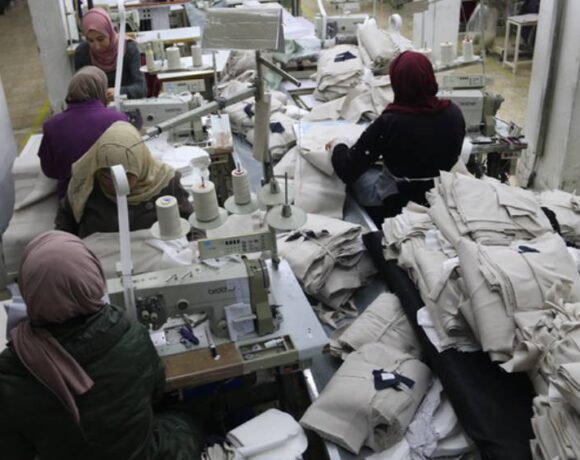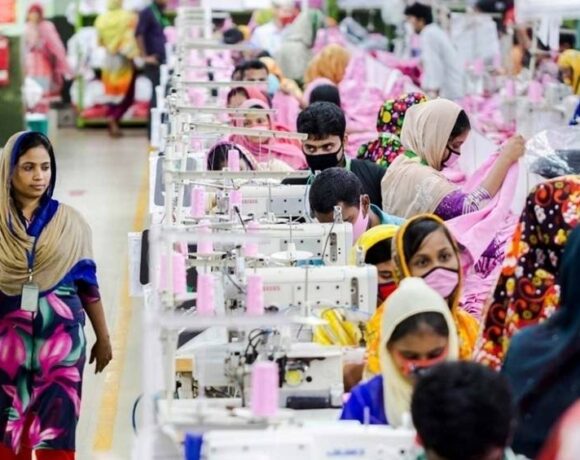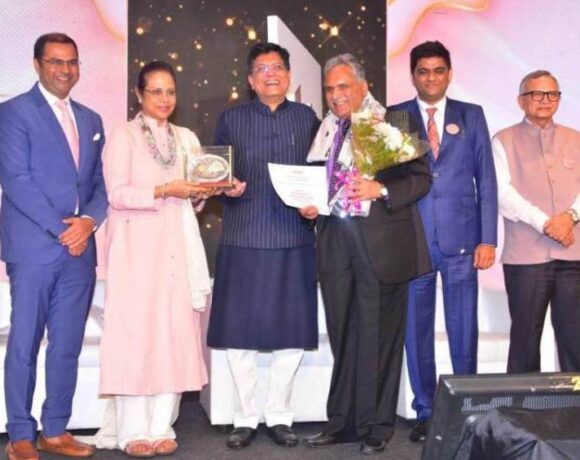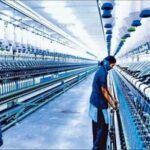President Museveni And UMA Officials Strategize To Boost Uganda’s Textile Industry
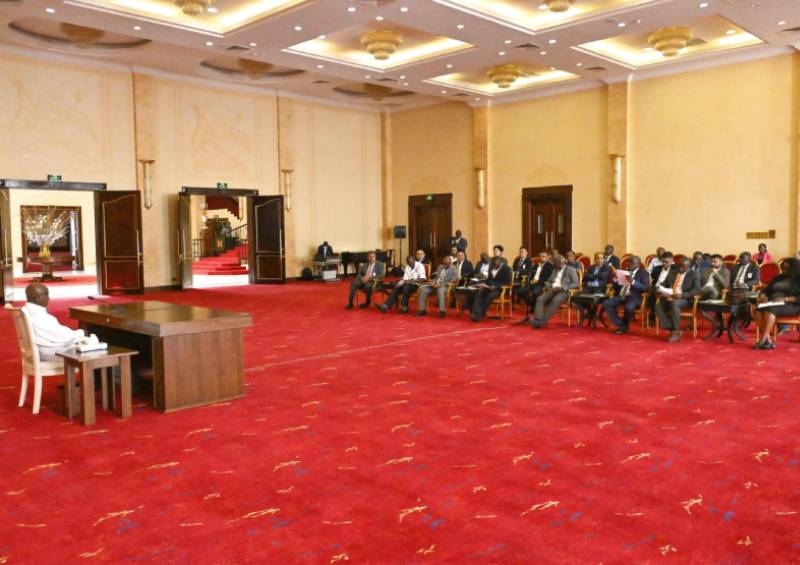
President Yoweri Kaguta Museveni convened a crucial meeting at State House, Entebbe, with representatives from the Uganda Manufacturers Association (UMA) to chart a course for revitalizing Uganda’s textile sector—a pivotal driver of economic growth in the country.
In his address to UMA officials, President Museveni underscored the imperative of strengthening and expanding local textile production. He emphasized the need to reduce reliance on foreign imports through recent tax measures aimed at promoting local manufacturing.
“We need to find effective strategies to curtail the influx of foreign textiles and bolster our domestic production,” President Museveni stated, highlighting the government’s recent imposition of taxes on textile imports based on weight as a proactive step in this direction.
Deo Kayemba, Chairman of UMA’s Board, expressed gratitude to President Museveni for his steadfast support of Uganda’s manufacturing sector. He outlined UMA’s commitment to enhancing value addition within Uganda’s cotton industry, which currently processes only 10% of its production.
“Out of the 150,000 bales of cotton Uganda produces annually, only a fraction undergoes value addition and export. We aim to significantly increase this percentage to harness the full potential of our textile sector,” Kayemba affirmed.
Highlighting the sector’s economic significance, Kayemba noted that manufacturing employs approximately 1 million people directly and supports 4.5 million jobs indirectly in Uganda. He stressed UMA’s dedication to contributing to Uganda’s economic growth targets, aiming to elevate the economy from USD 55 billion to USD 500 billion.
The meeting also featured discussions with key government officials including Hon. Matia Kasaija, Minister of Finance, Planning and Economic Development, Hon. Mwebesa Francis, Minister of Trade, Industry and Cooperatives, and other high-ranking officials from various ministries and agencies.
UMA reiterated its commitment to collaborating closely with the government to advance Uganda’s manufacturing capabilities, create employment opportunities, and bolster the country’s competitiveness in the global textile market.
With collective efforts and strategic interventions, the textile industry in Uganda is poised to emerge as a cornerstone of economic transformation, driving sustainable development and prosperity for the nation.


